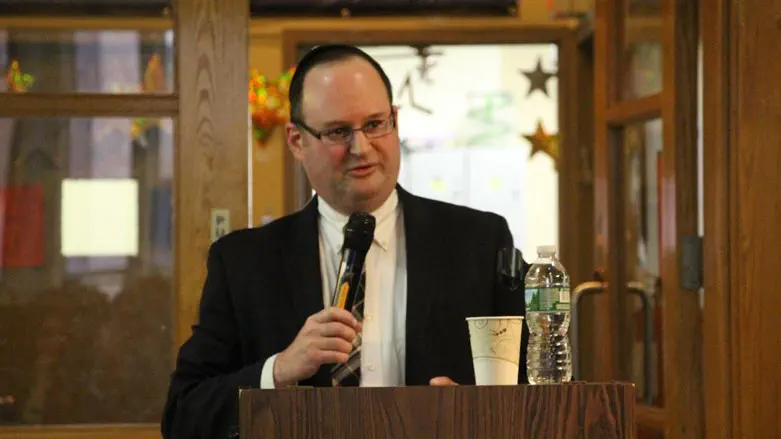
The central theme of Parshat Miketz is that of Yosef (Joseph) setting the stage for his brothers to do teshuva for having sold him. As God orchestrated the events in order to facilitate this scheme, by causing a famine which necessitated that Yosef’s brothers go to Mitzrayim (Egypt) to buy food, and by arranging that Yosef be the one person the brothers needed to meet for this purpose, Yosef sought to place his brothers in a situation almost identical to that of 22 years prior, when they sold him into slavery, resentful of his special status.
In order to recreate this scenario as best as possible, Yosef took his brother Binyamin – who now filled a special role in the life of Yaakov as the son of Rachel who needed to be with Yaakov in order to comfort him for the loss of Rachel and Yosef (c. Rashi on Bereshit/Genesis 44:29) and whose safety could not be risked – and enhanced Binyamin’s privileged status even further by seating Binyamin up front with him at the feast with Yosef’s family and the brothers, and by providing Binyamin with five times the amount of portions as received by the other brothers. Then, by placing the apparently-favored Binyamin in peril (to become enslaved in Mitzrayim) in the presence of his brothers, just as Yosef himself was in peril with them 22 years ago, Yosef positioned his brothers to either succumb to feelings of envy and enmity and allow Binyamin to suffer a dire fate, or to overcome any feelings of resentment toward Binyamin and jeopardize their own welfare in order to save him and to protect the wellbeing of their father Yaakov.
As the Rambam explains in Hilchot Teshuva (2:1), complete teshuva is attained by being in the same situation as one sinned on a previous occasion and now conquering one’s inclination this time in order to do what is right. This was Yosef’s goal for his brothers, by creating a scenario very akin to the events leading up to Yosef’s sale into slavery. The seemingly-favored younger brother Binyamin was now about to become a lifelong slave in Mitzrayim; would the brothers go along with it or fight it?
The test for the brothers was formidable, for it was designed to evoke potential feelings of bitterness toward another younger brother and son of Rachel, who appeared to have done nothing positive to attain exceptional and protected status. Yet as challenging as this test might have appeared to have been for Yosef’s brothers, it was a real challenge for Yosef himself. Let me please explain.
Midrash Ha-Gadol (Mikeitz 16) relates regarding Yosef’s initial sighting of Binyamin in Mitzrayim: “When Yosef saw Binyamin, he rejoiced, for he saw in Binyamin the visage of his father”. What does this mean? Indeed, all of Yosef’s brothers had the DNA of Yaakov Avinu (Jacob our forefather) and they all therefore presumably resembled Yaakov to a certain degree. What was it about Binyamin that embodied the visage of Yaakov more than the other brothers?
As noted above, Binyamin needed to be with Yaakov to provide comfort. Binyamin’s prolonged intimate exposure to his father, similar to Yaakov’s relationship with Yosef himself decades prior (see second interpretation in Rashi on Bereshit 37:3), caused Binyamin to more robustly internalize and personify Yaakov’s character and his essence. (As those who have been privileged to witness the impact of gedolei Torah (the generation’s greatest Torah scholars) on their closest talmidim (students) can attest, prolonged periods of being in the intimate presence of one’s rebbe rub off and result in these closest talmidim substantially becoming personifications of their rebbe.) In Binyamin did Yosef see a marked reflection of his father’s personality, values and mannerisms; this moved Yosef so and filled him with a feeling of joy. This is the meaning of the above statement from Midrash Ha-Gadol.
Although Yosef probably wanted nothing more at this juncture than to reveal his identity and reunite with his father, whose visage and persona he delightfully encountered when seeing Binyamin, Yosef held back, as this would have prevented his scheme for the brothers’ teshuva from coming to fruition. The failure of the brothers to do teshuva would have eternal negative ramifications for Klal Yisrael (the Jewish People) and would have doomed the nation’s future and resulted in perpetual schism.
Similarly, when Yosef first saw Binyamin in Mitzrayim and blessed him, then rushed out to cry, as Yosef’s emotions overcame him (ibid. 43:29-30), Yosef would have loved to embrace Binyamin and reunite with him – yet Yosef refrained from doing so, as it would have hindered the much greater goal that Yosef was hoping would be achieved.
As much as Yosef’s brothers were put to a test, so was Yosef put to a test, for he longed and pined to reunite with his father and brothers, but he painfully restrained himself in order to further a strategy that would determine the entire trajectory and future existence of Klal Yisrael.
Yosef’s tzidkut (righteousness) was not only reflected in his saintly behavior while in Egyptian captivity and later as the viceroy of Egypt, where he held fast to his heritage under the most challenging of circumstances, in a society that was the antithesis of tahara and kedusha (purity and holiness).
Yosef’s tzidkut extended into his plans for the future Jewish nation, as he continued to courageously hold back his desires, passions and emotional needs in pursuit of an infinitely higher goal.